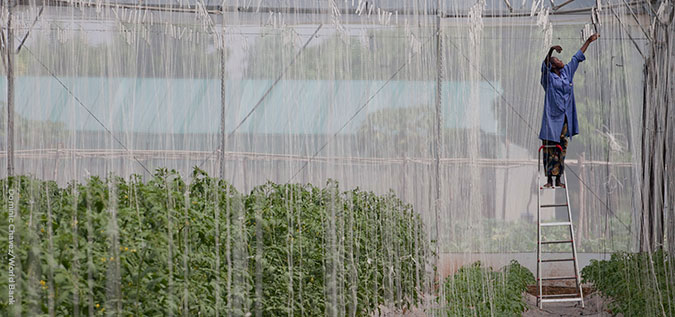The process to identify the sustainable development goals
At the 2010 High-level Plenary Meeting of the UN General Assembly to review progress towards the MDGs, Governments called not only for accelerated progress towards achieving the MDGs, but also for new thinking on ways to advance the UN development agenda beyond 2015.
The UN Conference on Sustainable Development (Rio+20) in June 2012 launched an intergovernmental process to define the Sustainable Development Goals (SDGs). It called for the establishment of an open working group with the view to developing global sustainable development goals which will be agreed by the UN General Assembly in 2015.
The 30-member Open Working Group (OWG) was established in January 2013 and included representatives nominated by Member States from the five UN regional groups. Member States decided to use an innovative, constituency-based system of representation which means that most of the seats in the OWG are shared by several countries.
The UN Secretary-General provided the initial input to the work of the group, in consultation with national governments. To support the OWG, an inter-agency technical support team on SDGs was established under the umbrella of the UN System Task Team on the Post-2015 UN Development Agenda. The UN Task Team prepared issues briefs on the topics being discussed by the OWG. UN Women is a member of the Task Team.
The OWG met in eight sessions that covered a large number of issues, ranging from poverty eradication, food security, water and sanitation, employment, health, macroeconomic policy questions, means of implementation, sustainable consumption and production, to human rights, gender equality, conflict prevention and post-conflict peacebuilding. In September 2014, the OWG submitted its report with a proposal for the SDGs to the 68th session of the UN General Assembly.
It specified that the SDGs should:
- address and incorporate in a balanced way all three dimensions of sustainable development (economic, social and environmental) as well as their inter-linkages;
- build upon commitments already made and contribute to the full implementation of the outcomes of all major summits in the economic, social and environmental fields, including the Rio+20 outcome document;
- be action-oriented, concise and easy to communicate, limited in number, aspirational, global in nature and universally applicable to all countries; and
- be coherent with, and integrated into, the United Nations development agenda beyond 2015.
The UN General Assembly adopted a resolution deciding that the OWG report would be the main basis for integrating the SDGs in the post-2015 development agenda.
The Secretary-General submitted a synthesis report to the General Assembly on the inputs to the post-2015 development agenda in 2014.
Eight sessions of intergovernmental negotiations were held by the General Assembly, and facilitated by the Permanent Representatives of Ireland and Kenya between January and August 2015. UN Women followed these sessions closely and issued a set of key messages tailored to the focus of each session to support the negotiations and highlight the importance of addressing gender equality in all parts of the outcome document. At a final session on 2 August, the draft outcome document “Transforming Our World: the 2030 Agenda for Sustainable Development” was presented and agreed by consensus. It features 17 new sustainable development goals (SDGs) and 169 targets and will be formally adopted by world leaders at the United Nations Summit for the adoption of the post-2015 development agenda, to be held in New York from 25-27 September 2015.
To hash out how to chart progress on each of the 17 sustainable development goals, an Inter-agency and Expert Group on the Sustainable Development Goal Indicators was established. It held its first meeting in June 2015 and its final proposal will be presented for approval to the UN Statistical Commission at its forty-seventh session in March 2016.
Latest news
Women and the environment

As part of UN Women's Beijing+20 campaign, this editorial package focuses on one of the 12 critical areas of concern of the Beijing Platform for Action, and how women can and do make a difference in environmental decisions, responding to natural disasters and managing natural resources. Read more